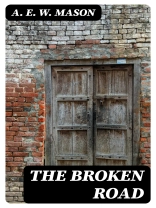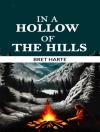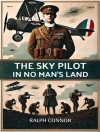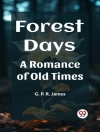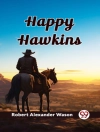In ‘The Broken Road, ‘ A. E. W. Mason weaves a compelling narrative that intertwines themes of personal discovery, resilience, and the inexorable passage of time. Set against a richly detailed backdrop, the novel unfolds with an elegant prose style that evokes the complexities of human emotion and the landscapes that shape our identities. Mason’s literary context is marked by early 20th-century influences, where exploration of character psychology and moral dilemmas came to the fore, revealing the fine line between ambition and disillusionment in the characters’ lives. A. E. W. Mason, a distinguished writer and playwright, brings to this work a wealth of experience from his varied career, including his time as a war correspondent during World War I. His observations of the human condition amidst the tumult of conflict fueled his exploration of spirituality and personal redemption. Mason’s own travels and international backdrop inform the vivid descriptions and intricate setting of ‘The Broken Road, ‘ allowing readers to engage deeply with both character and place. This novel is highly recommended for readers who appreciate nuanced character studies and intricate plots that delve into the depths of the human psyche. Mason’s exploration of life’s fractured paths offers both poignancy and insight, making ‘The Broken Road’ an enriching read for those seeking to understand the journey of self-discovery amidst life’s inevitable challenges.
Circa l’autore
Alfred Edward Woodley Mason, commonly known as A. E. W. Mason (1865-1948), was a prolific English author best known for his classic adventure novel ‘The Four Feathers’ (1902). He was born in London and educated at Dulwich College, London, and Trinity College, Oxford. After a stint in acting, Mason turned his focus entirely to writing. Mason’s literary style often fused elements of adventure with a deep understanding of human psychology and a rich sense of location, perhaps attributable to his travels and brief service as a war correspondent during the Boer War. Apart from ‘The Four Feathers, ‘ which remains his most celebrated work, Mason authored other notable books, including the lesser-known ‘The Broken Road’ (1907). Although ‘The Broken Road’ has not received the same critical acclaim as some of his other works, it nonetheless exemplifies Mason’s knack for storytelling and his ability to translate the intricacies of human dilemma into compelling narrative form. Mason’s literary contributions extend beyond fiction; he also served as a Liberal Member of Parliament. In the canon of early 20th-century British literature, Mason’s body of work continues to captivate readers with its adventurous spirit and keen insights into the ethos of the era.
